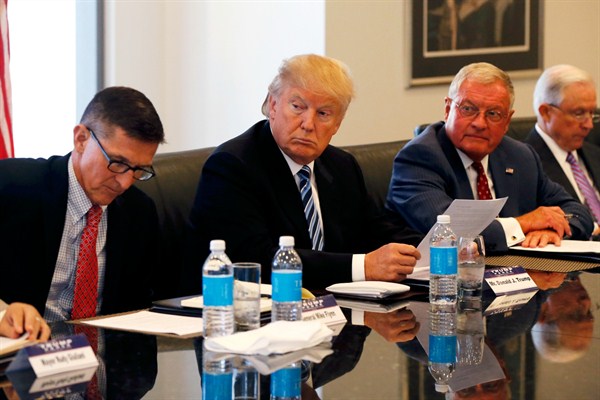In the most shocking political upset in American history, Donald Trump has won the presidency. Now there are major questions about whether someone who has never held elected office or exercised leadership in a system based on consensus-building and a division of power can learn to do so on the job, at a time when so much is at stake. Trump’s learning curve will be particularly crucial in the realm of national security strategy, where the president faces fewer checks and balances, and where mistakes can have a cost in blood and even precipitate outright disaster.
It is hard to know precisely what direction Trump will take American strategy. During the campaign, he developed themes about how he would deal with the world, but not detailed policies. And he often changed his positions. This means that the things he said while campaigning may not define the actual strategy he implements. But at this point, campaign themes are all that is available to assess what the next few years will bring. By combining them with the state of the global security environment, we can identify the course-charting challenges that President-elect Trump will face.
Trump’s first task will be to build a national security team. Washington insiders had a clear sense of who would have played leading roles in a Hillary Clinton administration. Not so with Trump’s. As Peter Feaver and Will Imboden, both national security officials in the George W. Bush administration, wrote, “Some of the best people on the Republican side of the aisle are #NeverTrumpers, like us, and so are ruled out of consideration. But fortunately for the country, some very fine professionals kept their powder dry and so are available to serve.” It remains to be seen whether they will do so; whether, as Feaver and Imboden note, Trump will build a team based on competence and experience rather than enthusiastic loyalty; and whether once a team is in place, Trump will recognize the limits of his own understanding of national security policy and military strategy, and rely on more experienced hands. Campaign statements like knowing more about the so-called Islamic State “than the generals” does not bode well here.

